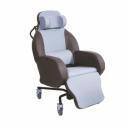Computer stability problems
In my case, the solution was a couple of steps.
1. Set CPU overclock to stock settings
2. Make sure ram is stable or at stock
3. Set SoC voltage to 1v
4. Set the PCIe lane mode to 8x2 instead of 16x1 in advanced settings in the BIOS
5. Reset graphics driver COMPLETELY:
1. Open "Programs and Features" in control panel
2. Look for all the nvidia apps
3. Uninstall the graphics driver only (for now)
4. Reboot into safe mode
5. Uninstall graphics card from "Device Manager" in "Display Adapter"
6. Go to "Programs and Features" and uninstall everything related to nvidia except the physX driver (you can't delete it in safe mode)
7. Reboot computer into normal windows
8. Reinstall graphics driver
This completely solved my stability issues. Thanks!

















Create an account or sign in to comment
You need to be a member in order to leave a comment
Create an account
Sign up for a new account in our community. It's easy!
Register a new accountSign in
Already have an account? Sign in here.
Sign In Now